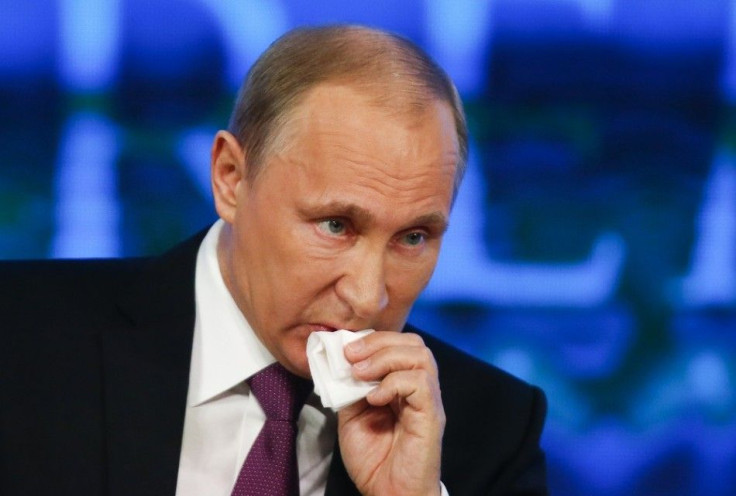Experts Warn Russia Will Suffer From Recession In 2015 Due To Sanctions, But Putin Says It Won’t Intimidate Moscow

After last week's fall of the Russian rouble, international economic experts are now predicting that Russia would undergo a recession in the coming year 2015 as more economic sanctions are imposed by the west.
YouTube/The Malay Mail Online
This week, the US and European Union further tightened sanctions against investments in Crimea, while Canada redoubled its Moscow sanctions.
But despite the threats to the Russian economy that could result in further contraction, Russian President Vladimir Putin belittled the additional sanctions, saying these are just imposed simply because it is Russia, not other nations.
He boasted, quoted by The Week, "Obviously, no one will succeed in intimidating us, to deter, to isolate Russia."
Mr Putin, however, admitted last week that he has no plan yet how Russia would get out of its current economic slump, following the 40 percent depreciation of the Russian currency since January, significant decline in oil prices and the west-imposed sanctions.
He reckoned Russia would get out of its financial crisis in two years based on his belief that global oil prices would eventually go up again since lower energy prices will result in higher consumer spending and more investments across the world.
He criticised the US-led sanctions as being imposed by nations that call themselves as democratic, yet use economic sanctions even in the 21st century. Moscow vowed to initiate retaliatory measures against its "economic oppressors."
Experts said the problem with Russia, besides its expansionist ambitions, is that despite its being rich in energy resources, it has an outdated manufacturing sector, so it is largely dependent on oil exports for revenues.






